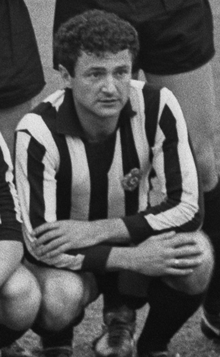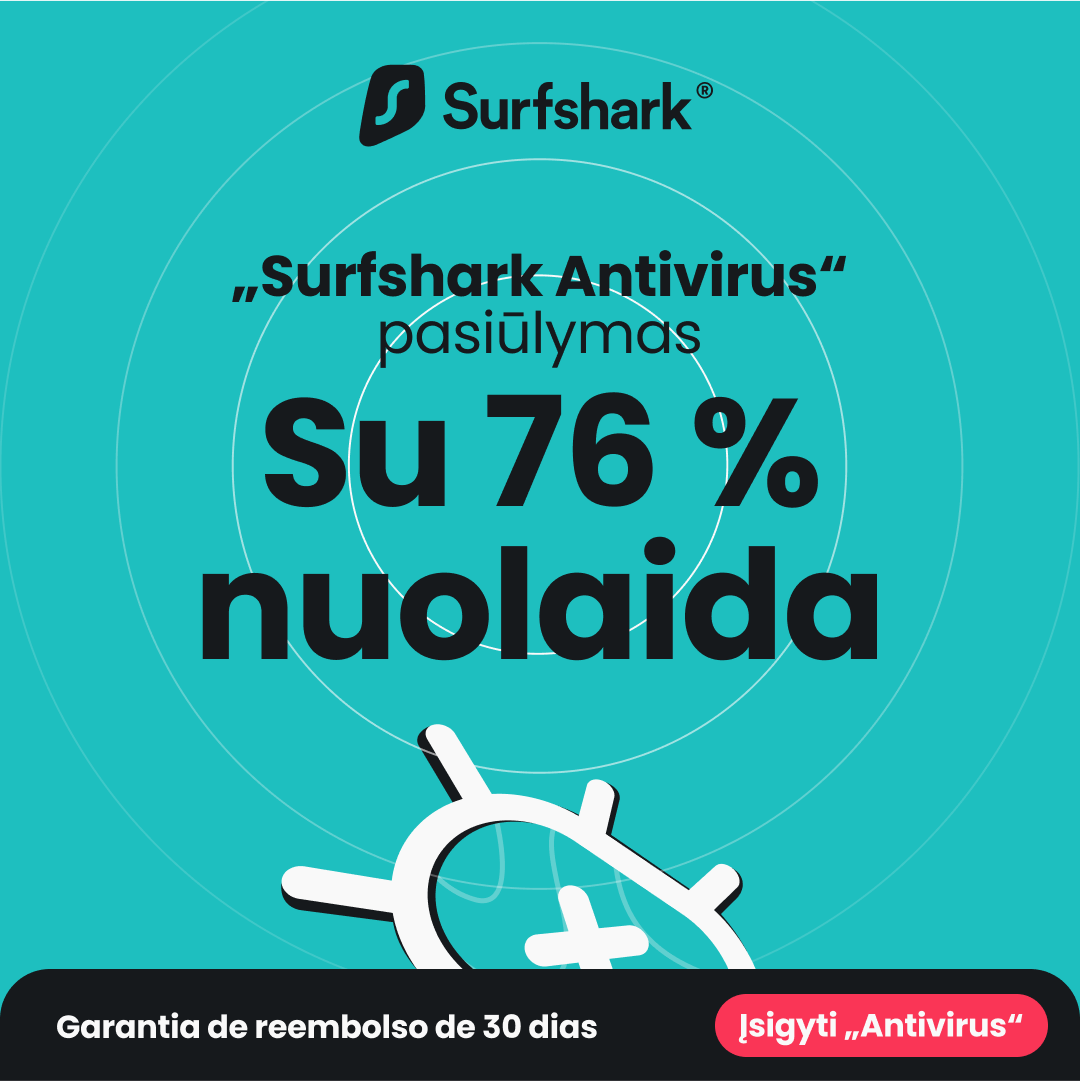
Milan Galić

 Galić in May 1966 ahead of Partizan's European Cup final versus Real Madrid. | |||
| Personal information | |||
|---|---|---|---|
| Full name | Milan Galić | ||
| Date of birth | 8 March 1938 | ||
| Place of birth |
Bosansko Grahovo, Yugoslavia (now Bosnia and Herzegovina) | ||
| Date of death | 13 September 2014 (aged 76) | ||
| Place of death | Belgrade, Serbia | ||
| Height | 1.73 m (5 ft 8 in) | ||
| Position(s) | Striker | ||
| Youth career | |||
| 1952–1958 | Proleter Zrenjanin | ||
| Senior career* | |||
| Years | Team | Apps | (Gls) |
| 1958–1966 | Partizan | 148 | (74) |
| 1966–1970 | Standard Liège | 84 | (33) |
| 1970–1973 | Reims | 55 | (18) |
| Total | 287 | (125) | |
| International career | |||
| 1959–1965 | Yugoslavia | 51 | (37) |
Medal record | |||
| *Club domestic league appearances and goals | |||
Milan Galić (Serbian Cyrillic: Милан Галић, pronounced [mǐlaŋ ɡǎːlitɕ];[a] 8 March 1938 – 13 September 2014) was a Yugoslav and Serbian professional footballer who played as a striker. He was part of the Yugoslav squad that won gold at the 1960 Summer Olympics.[1]

During his active career, Galić played for four clubs, namely Proleter Zrenjanin, Partizan, Standard Liège and Reims. He also represented Yugoslavia internationally, earning 51 caps and scoring 37 goals,[2][3] being the second-highest scorer in the history of the national team, only behind Stjepan Bobek with 38.[4]

After finishing his playing career, Galić was employed at the Football Association of Yugoslavia.

Club career
Partizan
After starting out with Proleter Zrenjanin, Galić was transferred to Partizan in the 1958–59 campaign. He spent the following eight seasons at Stadion JNA, winning the Yugoslav First League on four occasions (1961, 1962, 1963 and 1965).

In 1960–61 season, Galić won his first title with Partizan. That was also first title for The Steamroller after 1949. He scored a twice in first match of the season, in Split against RNK Split and helping club to reach first victory in the season, 4–2. He also scored two goals in Eternal Derby in a 3–0 home victory on 30 October 1960. On 11 June 1961, Galić scored hat-trick in a 4–2 away victory against Radnički Beograd, in last round and securing the title. He scored 14 goals in 21 league matches and become the top scorer of club in the season.

In next season, Galić helped the club win second consecutive title. He scored 7 goals in 21 matches. He scored twice on 27 August in a 2–1 home victory against OFK Beograd and also scored another two goals on 4 March at Omladinski Stadium in a 2–1 victory. Galić decided a Derby against Vojvodina in Novi Sad, on 22 October by the goal in 76th minute and also score against this team in a 2–3 home defeat. He scored an equalizer in a 3–1 away victory in Rijeka.

In 1962–63 season the club won another title. Galić scored 15 goals in 24 league matches. On 3 October, he scored his first goal in European competitions, against CSKA Red Flag. He scored a hat-trick in a 4–3 home victory against Vojvodina, on 23 September, on 28 October in Eternal Derby in a 5–0 record away victory and on 25 November in a 5–1 home victory over Novi Sad. On 9 December, in last match of autumn part of the season, he scored a goal in derby against Hajduk, in a 4–1 home win, and also scored in last match of the season against the same club, in Split, in a 1–1 away draw. Galić scored one more goal, against Dinamo Zagreb, in a 1–1 home draw of first match of second part of the season.

In 1963–64 season club finished on 5th place on the league table. Galić score only 4 goals in the league. On 21 August, he scored goal in first match in the season at home, in a 2–2 draw against Vardar. He scored in a 1–2 home defeat from Željezničar, on 13 October. In April, he scored a goal in derbies against Vojvodina and Hajduk in a 3–1 and 3–0 home victories. Galić scored two goals in preliminary round against Anorthosis Famagusta in a European Cup. He continue to scoring in European cup in a 1–2 away defeat to Jeunesse Esch. He also scored in a 6–2 victory in Belgrade. In quarter-finals they were eliminated by Inter Milan.

In 1964–65 season club return the champion title. Galić was top scored together with Vladica Kovačević with 16 goals. On 16 August he scored a goal in a 2–2 away draw in Eternal Derby. Two weeks later, he scored a brace against Trešnjevka in a 2–1 victory in Zagreb. On 21 March he scored a brace again in Zagreb, this time in Derby against Dinamo in a 2–1 victory. The winning goal Galić score in stoppage time. Three days later, he score another twice in a 4–0 home victory against Trešnjevka.

Galić did play in legendary 1965–66 season, when Partizan reach 1966 European Cup final, Galić played first five matches in the league and three in European cup. He scored in a 3–1 home victory over Rijeka, on 11 September. He played two matches against French champion Nantes. He scored a goal in 2–0 home victory on 22 September and in 2–2 draw in Nantes three weeks later. He played in European Cup final in Brussels on 11 May 1966 against Real Madrid in a 1–2 defeat.

Standard Liège and Reims
After leaving his homeland, Galić moved to Standard Liège, winning the Belgian First Division twice (1969 and 1970), as well as the Belgian Cup in 1967. He also played for French club Reims between 1970 and 1973.

International career
Galić made his international debut for Yugoslavia in a 2–0 home win over Bulgaria on 31 May 1959, scoring the game's opening goal.

Galić was a member of the team that finished as runner-up in the 1960 European Nations' Cup. He was the tournament's joint-top scorer with two goals, and he also scored the first goal ever in the UEFA Euro tournament. Later the same year, Galić played for Yugoslavia at the 1960 Summer Olympics, winning the gold medal.[5] He was the tournament's top scorer with seven goals, including the opening goal in the final, a 3–1 victory over Denmark.

Subsequently, Galić represented the country at the 1962 FIFA World Cup and scored three goals during the tournament, as the team finished in fourth place. His final international was an October 1965 World Cup qualification match away against France.[6]

Death
Galić died in 2014, aged 76.[7][8] He is interred in the Alley of Distinguished Citizens in the Belgrade New Cemetery together with Mića Orlović, Franjo Mihalić and Borisav Pisić.[9]

Career statistics
Club
| Club | Season | League | Continental | Total | ||||
|---|---|---|---|---|---|---|---|---|
| Division | Apps | Goals | Apps | Goals | Apps | Goals | ||
| Partizan | 1958–59 | Yugoslav First League | 10 | 7 | 0 | 0 | 10 | 7 |
| 1959–60 | 22 | 10 | 0 | 0 | 22 | 10 | ||
| 1960–61 | 21 | 14 | 0 | 0 | 21 | 14 | ||
| 1961–62 | 21 | 7 | 4 | 0 | 25 | 7 | ||
| 1962–63 | 25 | 16 | 1 | 1 | 26 | 17 | ||
| 1963–64 | 20 | 4 | 6 | 4 | 26 | 8 | ||
| 1964–65 | 24 | 15 | 0 | 0 | 24 | 15 | ||
| 1965–66 | 5 | 1 | 3 | 2 | 8 | 3 | ||
| Total | 148 | 74 | 14 | 7 | 162 | 81 | ||
| Standard Liège | 1966–67 | Belgian First Division | 22 | 9 | 5 | 2 | 27 | 11 |
| 1967–68 | 14 | 2 | 4 | 0 | 18 | 2 | ||
| 1968–69 | 23 | 5 | 1 | 1 | 24 | 6 | ||
| 1969–70 | 25 | 17 | 6 | 2 | 31 | 19 | ||
| Total | 84 | 33 | 16 | 5 | 100 | 38 | ||
| Reims | 1970–71 | French Division 1 | 36 | 14 | 0 | 0 | 36 | 14 |
| 1971–72 | 16 | 3 | 0 | 0 | 16 | 3 | ||
| 1972–73 | 3 | 1 | 0 | 0 | 3 | 1 | ||
| Total | 55 | 18 | 0 | 0 | 55 | 18 | ||
| Career total | 287 | 125 | 30 | 12 | 317 | 137 | ||
International
| National team | Year | Apps | Goals |
|---|---|---|---|
| Yugoslavia | 1959 | 2 | 1 |
| 1960 | 14 | 14 | |
| 1961 | 11 | 7 | |
| 1962 | 10 | 8 | |
| 1963 | 3 | 2 | |
| 1964 | 5 | 2 | |
| 1965 | 6 | 3 | |
| Total | 51 | 37 | |
| No. | Date | Venue | Opponent | Score | Result | Competition |
|---|---|---|---|---|---|---|
| 1 | 31 May 1959 | Belgrade, Yugoslavia | 1–0 |
2–0 |
1960 European Nations' Cup qualifying | |
| 2 | 24 April 1960 | Athens, Greece | 4–0 |
5–0 |
1960 Summer Olympics qualifying | |
| 3 | 11 May 1960 | London, England | 1–0 |
3–3 | Friendly | |
| 4 | 2–2
| |||||
| 5 | 22 May 1960 | Belgrade, Yugoslavia | 5–1 |
5–1 |
1960 European Nations' Cup qualifying | |
| 6 | 6 July 1960 | Paris, France | 1–0 |
5–4 |
1960 European Nations' Cup | |
| 7 | 10 July 1960 | 1–0 |
1–2 |
1960 European Nations' Cup final | ||
| 8 | 6 August 1960 | Belgrade, Yugoslavia | 4–0 |
7–0 |
Friendly | |
| 9 | 26 August 1960 | Pescara, Italy | 2–0 |
6–1 |
1960 Summer Olympics | |
| 10 | 29 August 1960 | Florence, Italy | 2–0 |
4–0
| ||
| 11 | 1 September 1960 | Rome, Italy | 1–0 |
3–3 | ||
| 12 | 2–0
| |||||
| 13 | 3–1
| |||||
| 14 | 5 September 1960 | Napoli, Italy | 1–0 |
1–1
| ||
| 15 | 10 September 1960 | Rome, Italy | 1–0 |
3–1 |
1960 Summer Olympics final | |
| 16 | 25 June 1961 | Chorzów, Poland | 1–0 |
1–1 |
1962 FIFA World Cup qualification | |
| 17 | 8 October 1961 | Belgrade, Yugoslavia | 5–1 |
5–1
| ||
| 18 | 26 November 1961 | Seoul, South Korea | 1–0 |
3–1 | ||
| 19 | 2–0
| |||||
| 20 | 7 December 1961 | Jakarta, Indonesia | 2–1 |
5–1 |
Friendly | |
| 21 | 14 December 1961 | Tel Aviv, Israel | 1–0 |
2–0 | ||
| 22 | 2–0
| |||||
| 23 | 16 May 1962 | Belgrade, Yugoslavia | 1–0 |
3–1 | ||
| 24 | 3–1
| |||||
| 25 | 2 June 1962 | Arica, Chile | 2–1 |
3–1 |
1962 FIFA World Cup | |
| 26 | 7 June 1962 | 1–0 |
5–0 | |||
| 27 | 3–0
| |||||
| 28 | 30 September 1962 | Zagreb, Yugoslavia | 1–0 |
2–3 | Friendly | |
| 29 | 2–3
| |||||
| 30 | 14 October 1962 | Budapest, Hungary | 1–0 |
1–0
| ||
| 31 | 31 March 1963 | Brussels, Belgium | 1–0 |
1–0 |
1964 European Nations' Cup qualifying | |
| 32 | 18 September 1963 | Malmö, Sweden | 1–0 |
2–3
| ||
| 33 | 20 September 1964 | Belgrade, Yugoslavia | 3–1 |
3–1 |
1966 FIFA World Cup qualification | |
| 34 | 23 September 1964 | Europe XI | 2–5 |
2–7 |
Friendly | |
| 35 | 18 April 1965 | 1–0 |
1–0 |
1966 FIFA World Cup qualification | ||
| 36 | 19 September 1965 | Luxembourg City, Luxembourg | 1–0 |
5–2 | ||
| 37 | 2–0
|
Honours
Club
Partizan

- Yugoslav First League: 1960–61, 1961–62, 1962–63, 1964–65
- Yugoslav Cup runner-up: 1959–60
- European Cup runner-up: 1965–66
Standard Liège

- Belgian First Division: 1968–69, 1969–70
- Belgian Cup: 1966–67
International
Yugoslavia

- Olympic Games: 1960
- European Nations' Cup runner-up: 1960
Individual
- Olympic Games Top Scorer: 1960
- European Nations' Cup Top Scorer: 1960
- European Nations' Cup Team of the Tournament: 1960[10]
- Golden Badge: 1962
- Ballon d'Or (8th place): 1962
Notes
References
- ^ "Milan Galić". Olympedia. Retrieved 10 December 2021.
- ^ "Gone but not forgotten". FIFA. 31 December 2014. Archived from the original on 6 September 2015. Retrieved 1 July 2015.
- ^ "Milan Galic - Goals in International Matches". RSSSF. Retrieved 1 July 2015.
- ^ "1960 team of the tournament". UEFA. 1 February 2011. Retrieved 28 September 2016.
- ^ "Olimpijski komitet Srbije uručio priznanja veteranima sporta" (in Serbian). Blic. 9 September 2010. Retrieved 28 September 2016.
- ^ "Milan Galić, international football player". EU-football.info. Retrieved 10 August 2024.
- ^ "Preminuo legendarni Milan Galić" (in Serbian). B92. 13 September 2014. Retrieved 1 July 2015.
- ^ "Preminuo Milan Galić" (in Serbian). Mondo. 13 September 2014. Retrieved 28 September 2016.
- ^ International Graves (26 November 2018). "Mića Orlović – International Graves". Retrieved 5 February 2019.
- ^ "1960 team of the tournament". Union of European Football Associations. 1 February 2011. Retrieved 14 May 2020.
External links
- Milan Galić at Reprezentacija.rs (in Serbian)
- Milan Galić – FIFA competition record (archived)
- 1938 births
- 2014 deaths
- People from Bosansko Grahovo
- Footballers from Canton 10
- Serbs of Bosnia and Herzegovina
- Men's association football forwards
- Yugoslav men's footballers
- Yugoslavia men's international footballers
- 1960 European Nations' Cup players
- Footballers at the 1960 Summer Olympics
- Olympic footballers for Yugoslavia
- Olympic gold medalists for Yugoslavia
- Olympic medalists in football
- Medalists at the 1960 Summer Olympics
- 1962 FIFA World Cup players
- FK Proleter Zrenjanin players
- FK Partizan players
- Standard Liège players
- Stade de Reims players
- Yugoslav First League players
- Belgian Pro League players
- Ligue 1 players
- Yugoslav expatriate men's footballers
- Expatriate men's footballers in Belgium
- Yugoslav expatriate sportspeople in Belgium
- Expatriate men's footballers in France
- Yugoslav expatriate sportspeople in France
- Burials at Belgrade New Cemetery
See what we do next...
OR
By submitting your email or phone number, you're giving mschf permission to send you email and/or recurring marketing texts. Data rates may apply. Text stop to cancel, help for help.
Success: You're subscribed now !
